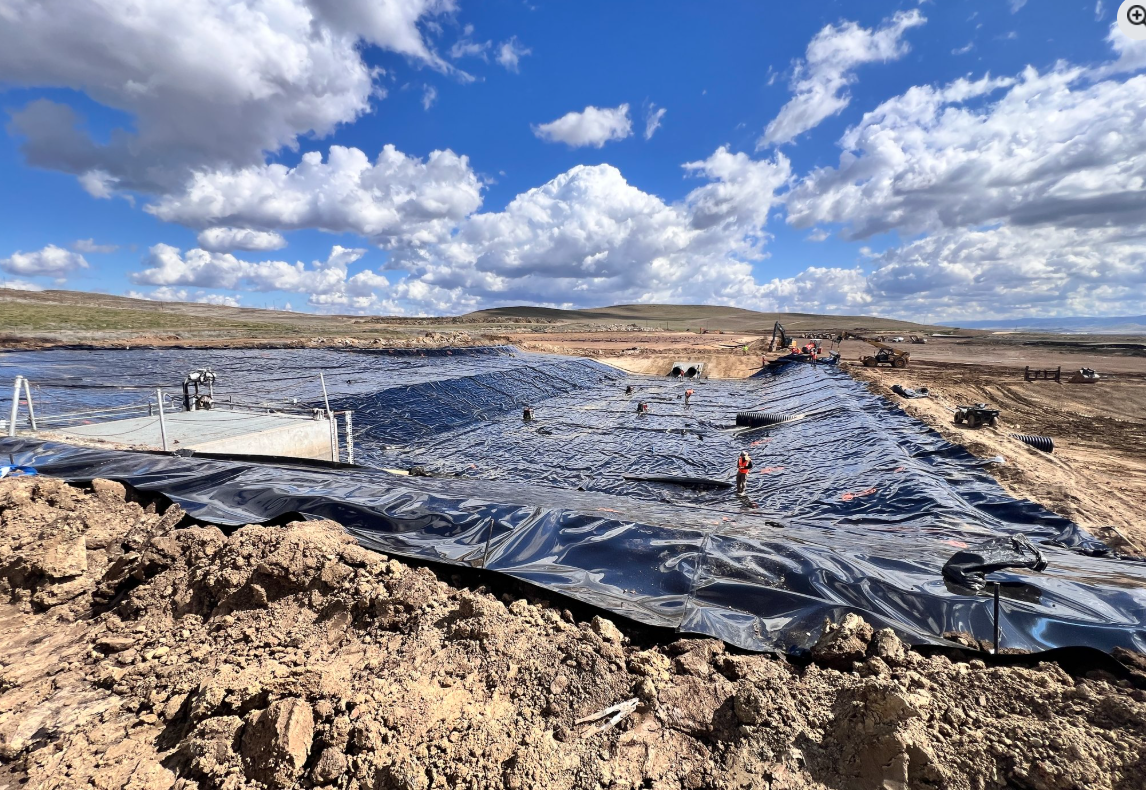
-
 Español
Español
-
 Portugues
Portugues
-
 Pусский
Pусский
-
 Français
Français
-
 Deutsch
Deutsch
-
 日本語
日本語
-
 한국어
한국어
-
 العربية
العربية
-
 Italiano
Italiano
-
 Nederlands
Nederlands
-
 Ελληνικά
Ελληνικά
-
 Svenska
Svenska
-
 Polski
Polski
-
 ไทย
ไทย
-
 Türk dili
Türk dili
-
 हिन्दी
हिन्दी
-
 Indonesia
Indonesia
-
 Melayu
Melayu
-
 Tiếng Việt
Tiếng Việt
-
 中文
中文
-
 dansk
dansk
-
 Magyar
Magyar
-
 қазақ
қазақ
-
 বাংলা
বাংলা
-
 עִברִית
עִברִית
-
 čeština
čeština
-
 Soomaali
Soomaali
-
 မြန်မာ
မြန်မာ
-
 فارسی
فارسی
-
 українська
українська
-
 norsk
norsk
-
 Gaeilge
Gaeilge
-
 беларускі
беларускі
-
 Română
Română
-
 ພາສາລາວ
ພາສາລາວ
-
 Filipino
Filipino
-
 lietuvių
lietuvių
-
 Cymraeg
Cymraeg
-
 македонски
македонски
-
 Suomalainen
Suomalainen
-
 slovenský
slovenský
-
 o'zbek
o'zbek
-
 اردو
اردو
-
 հայերեն
հայերեն
-
 Igbo
Igbo
-
 български
български
-
 سنڌي
سنڌي
-
 Shona
Shona
-
 සිංහල
සිංහල
-
 Hrvatski
Hrvatski
-
 íslenskur
íslenskur
-
 galego
galego
-
 català
català
-
 Zulu South Africa
Zulu South Africa
-
 Afrikaans isiXhosa
Afrikaans isiXhosa
-
 ಕನ್ನಡ
ಕನ್ನಡ
-
 lëtzebuergesch
lëtzebuergesch
-
 Indonésia Sunda
Indonésia Sunda
-
 basa jawa
basa jawa
-
 ગુજરાતી
ગુજરાતી
-
 Кыргызча
Кыргызча
-
 тоҷикӣ
тоҷикӣ
-
 Србија
Србија
-
 Twi
Twi
-
 Hawaii
Hawaii
-
 Cebu
Cebu
-
 नेपाल
नेपाल
-
 euskara
euskara
-
 Kurdî
Kurdî
-
 frissi
frissi
-
 יידיש
יידיש
-
 latvija
latvija
-
 slovenija
slovenija
-
 kiswahili
kiswahili
-
 ਪੰਜਾਬ
ਪੰਜਾਬ
-
 پښتو
پښتو
-
 საქართველოს
საქართველოს
-
 hua moni
hua moni
-
 bosna
bosna
-
 తెలుగు
తెలుగు
-
 தமிழ்
தமிழ்
-
 Kreyòl ayisyen
Kreyòl ayisyen
-
 Eesti
Eesti
-
 Corsica
Corsica
-
 Yoruba
Yoruba
-
 Gàidhlig na h-Alba
Gàidhlig na h-Alba
-
 Samoa
Samoa
-
 Монгол
Монгол
-
 Hausa
Hausa
-
 Azərbaycan
Azərbaycan
-
 አማራ
አማራ
-
 Shqipëria
Shqipëria
-
 Malagasy
Malagasy
-
 मराठी
मराठी
-
 മലയാളം
മലയാളം
-
 Malta
Malta
-
 ខ្មែរ
ខ្មែរ
-
 Chicheva
Chicheva
-
 中文(繁体)
中文(繁体)
-
 ଓଡିଆ
ଓଡିଆ
-
 Setswana
Setswana
-
 Afrikaans
Afrikaans
-
 Aymara
Aymara
-
 Башҡорт
Башҡорт
-
 Türkmenler
Türkmenler
-
 ትግሪኛ
ትግሪኛ
-
 Afaan Oromoo
Afaan Oromoo
-
 অসমীয়া
অসমীয়া
-
 Kinyarwanda
Kinyarwanda
-
 Ilocano
Ilocano
-
 Wolof
Wolof
-
 अवधी
अवधी
-
 Oluganda
Oluganda
-
 Bikol
Bikol
-
 Fulɓe
Fulɓe
-
 Kikongo
Kikongo
-
 Sango
Sango
-
 ދިވެހި
ދިވެހި
-
 Lingala
Lingala
-
 मैथिली
मैथिली
-
 Tsonga
Tsonga
-
 ꯃꯦꯏ ꯊꯥꯏ꯫
ꯃꯦꯏ ꯊꯥꯏ꯫
-
 brezhoneg
brezhoneg
-
 Furlan
Furlan
-
 नेवा
नेवा
-
 རྫོང་ཁ
རྫོང་ཁ
-
 Santali
Santali
-
 Аҧсуа
Аҧсуа
-
 Нохчийн
Нохчийн
-
 Чӑваш
Чӑваш
-
 Татар
Татар
-
 Batak Karo
Batak Karo
-
 دری
دری
-
 Diura
Diura
-
 Fengyu
Fengyu
-
 Eʋegbe
Eʋegbe
-
 Iban
Iban
-
 Fiji
Fiji
-
 Tonga
Tonga
-
 Inuktitut
Inuktitut
-
 Nahuatl
Nahuatl
-
 maaya yucatec
maaya yucatec
-
 Runasimi
Runasimi
-
 guarani
guarani
-
 Qafar
Qafar
-
 Acholi
Acholi
-
 Dinka
Dinka
-
 Luo
Luo
-
 Lundi
Lundi
-
 isiNdebele
isiNdebele
-
 Tshivenḓa
Tshivenḓa
-
 Sesotho sa Leboa
Sesotho sa Leboa
-
 Sesotho sa Borwa
Sesotho sa Borwa
-
 Ndumbe
Ndumbe
-
 Papuan Pidgin
Papuan Pidgin
-
 Rromani ćhib
Rromani ćhib
-
 Thok Nath
Thok Nath
yuxiatugong@163.com
+86 18353494641
-
 Español
Español
-
 Portugues
Portugues
-
 Pусский
Pусский
-
 Français
Français
-
 Deutsch
Deutsch
-
 日本語
日本語
-
 한국어
한국어
-
 العربية
العربية
-
 Italiano
Italiano
-
 Nederlands
Nederlands
-
 Ελληνικά
Ελληνικά
-
 Svenska
Svenska
-
 Polski
Polski
-
 ไทย
ไทย
-
 Türk dili
Türk dili
-
 हिन्दी
हिन्दी
-
 Indonesia
Indonesia
-
 Melayu
Melayu
-
 Tiếng Việt
Tiếng Việt
-
 中文
中文
-
 dansk
dansk
-
 Magyar
Magyar
-
 қазақ
қазақ
-
 বাংলা
বাংলা
-
 עִברִית
עִברִית
-
 čeština
čeština
-
 Soomaali
Soomaali
-
 မြန်မာ
မြန်မာ
-
 فارسی
فارسی
-
 українська
українська
-
 norsk
norsk
-
 Gaeilge
Gaeilge
-
 беларускі
беларускі
-
 Română
Română
-
 ພາສາລາວ
ພາສາລາວ
-
 Filipino
Filipino
-
 lietuvių
lietuvių
-
 Cymraeg
Cymraeg
-
 македонски
македонски
-
 Suomalainen
Suomalainen
-
 slovenský
slovenský
-
 o'zbek
o'zbek
-
 اردو
اردو
-
 հայերեն
հայերեն
-
 Igbo
Igbo
-
 български
български
-
 سنڌي
سنڌي
-
 Shona
Shona
-
 සිංහල
සිංහල
-
 Hrvatski
Hrvatski
-
 íslenskur
íslenskur
-
 galego
galego
-
 català
català
-
 Zulu South Africa
Zulu South Africa
-
 Afrikaans isiXhosa
Afrikaans isiXhosa
-
 ಕನ್ನಡ
ಕನ್ನಡ
-
 lëtzebuergesch
lëtzebuergesch
-
 Indonésia Sunda
Indonésia Sunda
-
 basa jawa
basa jawa
-
 ગુજરાતી
ગુજરાતી
-
 Кыргызча
Кыргызча
-
 тоҷикӣ
тоҷикӣ
-
 Србија
Србија
-
 Twi
Twi
-
 Hawaii
Hawaii
-
 Cebu
Cebu
-
 नेपाल
नेपाल
-
 euskara
euskara
-
 Kurdî
Kurdî
-
 frissi
frissi
-
 יידיש
יידיש
-
 latvija
latvija
-
 slovenija
slovenija
-
 kiswahili
kiswahili
-
 ਪੰਜਾਬ
ਪੰਜਾਬ
-
 پښتو
پښتو
-
 საქართველოს
საქართველოს
-
 hua moni
hua moni
-
 bosna
bosna
-
 తెలుగు
తెలుగు
-
 தமிழ்
தமிழ்
-
 Kreyòl ayisyen
Kreyòl ayisyen
-
 Eesti
Eesti
-
 Corsica
Corsica
-
 Yoruba
Yoruba
-
 Gàidhlig na h-Alba
Gàidhlig na h-Alba
-
 Samoa
Samoa
-
 Монгол
Монгол
-
 Hausa
Hausa
-
 Azərbaycan
Azərbaycan
-
 አማራ
አማራ
-
 Shqipëria
Shqipëria
-
 Malagasy
Malagasy
-
 मराठी
मराठी
-
 മലയാളം
മലയാളം
-
 Malta
Malta
-
 ខ្មែរ
ខ្មែរ
-
 Chicheva
Chicheva
-
 中文(繁体)
中文(繁体)
-
 ଓଡିଆ
ଓଡିଆ
-
 Setswana
Setswana
-
 Afrikaans
Afrikaans
-
 Aymara
Aymara
-
 Башҡорт
Башҡорт
-
 Türkmenler
Türkmenler
-
 ትግሪኛ
ትግሪኛ
-
 Afaan Oromoo
Afaan Oromoo
-
 অসমীয়া
অসমীয়া
-
 Kinyarwanda
Kinyarwanda
-
 Ilocano
Ilocano
-
 Wolof
Wolof
-
 अवधी
अवधी
-
 Oluganda
Oluganda
-
 Bikol
Bikol
-
 Fulɓe
Fulɓe
-
 Kikongo
Kikongo
-
 Sango
Sango
-
 ދިވެހި
ދިވެހި
-
 Lingala
Lingala
-
 मैथिली
मैथिली
-
 Tsonga
Tsonga
-
 ꯃꯦꯏ ꯊꯥꯏ꯫
ꯃꯦꯏ ꯊꯥꯏ꯫
-
 brezhoneg
brezhoneg
-
 Furlan
Furlan
-
 नेवा
नेवा
-
 རྫོང་ཁ
རྫོང་ཁ
-
 Santali
Santali
-
 Аҧсуа
Аҧсуа
-
 Нохчийн
Нохчийн
-
 Чӑваш
Чӑваш
-
 Татар
Татар
-
 Batak Karo
Batak Karo
-
 دری
دری
-
 Diura
Diura
-
 Fengyu
Fengyu
-
 Eʋegbe
Eʋegbe
-
 Iban
Iban
-
 Fiji
Fiji
-
 Tonga
Tonga
-
 Inuktitut
Inuktitut
-
 Nahuatl
Nahuatl
-
 maaya yucatec
maaya yucatec
-
 Runasimi
Runasimi
-
 guarani
guarani
-
 Qafar
Qafar
-
 Acholi
Acholi
-
 Dinka
Dinka
-
 Luo
Luo
-
 Lundi
Lundi
-
 isiNdebele
isiNdebele
-
 Tshivenḓa
Tshivenḓa
-
 Sesotho sa Leboa
Sesotho sa Leboa
-
 Sesotho sa Borwa
Sesotho sa Borwa
-
 Ndumbe
Ndumbe
-
 Papuan Pidgin
Papuan Pidgin
-
 Rromani ćhib
Rromani ćhib
-
 Thok Nath
Thok Nath

News Center
News Center
HOT PRODUCT
Underground Garage Waterproof Sheet With High Puncture Resistance
2025-10-10 02:18:35

Underground Garage Waterproof Sheet with High Puncture Resistance
Introduction
Waterproofing is a critical aspect of underground garage construction, ensuring long-term durability and protection against water infiltration. One of the most effective solutions for this purpose is the use of high-puncture-resistant waterproof sheets. These sheets provide a robust barrier against moisture, hydrostatic pressure, and mechanical damage, making them ideal for underground structures exposed to harsh environmental conditions.
This article explores the key features, benefits, materials, installation methods, and applications of high-puncture-resistant waterproof sheets for underground garages. By understanding these aspects, engineers, architects, and construction professionals can make informed decisions to enhance the longevity and performance of underground parking facilities.
---
1. Importance of Waterproofing in Underground Garages
Underground garages are prone to water infiltration due to their below-grade positioning. Without proper waterproofing, these structures can suffer from:
- Water seepage, leading to structural damage and corrosion of reinforcement bars.
- Mold and mildew growth, affecting indoor air quality and posing health risks.
- Hydrostatic pressure, which can cause cracks and leaks over time.
- Reduced lifespan of the garage due to continuous exposure to moisture.
A high-puncture-resistant waterproof sheet acts as a durable, impermeable membrane that prevents water penetration while withstanding mechanical stresses from backfilling, traffic loads, and construction activities.
---
2. Key Features of High-Puncture-Resistant Waterproof Sheets
2.1. Exceptional Puncture Resistance
These sheets are engineered to resist punctures from sharp objects such as rocks, rebar, and construction debris. This property ensures long-term integrity even in demanding underground environments.
2.2. High Tensile Strength
The material exhibits excellent tensile strength, allowing it to withstand ground movement and structural settling without tearing.
2.3. Chemical Resistance
Resistant to chemicals found in soil, groundwater, and construction materials, preventing degradation over time.
2.4. Flexibility & Adaptability
The sheets conform to irregular surfaces, ensuring complete coverage and sealing around corners, joints, and penetrations.
2.5. UV Resistance (for exposed applications)
Some sheets are treated to resist UV degradation when temporarily exposed during construction.
2.6. Self-Healing Properties (optional)
Certain advanced membranes have self-healing capabilities, automatically sealing minor punctures caused during installation or service life.
---
3. Common Materials Used in High-Puncture-Resistant Waterproof Sheets
3.1. High-Density Polyethylene (HDPE)
- Pros: High puncture resistance, chemical stability, and durability.
- Cons: Less flexible compared to other materials.
3.2. Thermoplastic Polyolefin (TPO)
- Pros: Excellent flexibility, UV resistance, and heat-weldable seams.
- Cons: Slightly lower puncture resistance than HDPE.
3.3. Polyvinyl Chloride (PVC)
- Pros: Good flexibility, chemical resistance, and ease of installation.
- Cons: May contain plasticizers that can leach over time.
3.4. Ethylene Propylene Diene Monomer (EPDM)
- Pros: High elasticity, weather resistance, and long lifespan.
- Cons: Requires adhesives or tapes for seams, which may weaken over time.
3.5. Reinforced Bituminous Membranes
- Pros: Excellent waterproofing and self-adhesive properties.
- Cons: Heavier and more labor-intensive to install.
---
4. Installation Methods for Underground Garage Waterproofing
4.1. Surface Preparation
- Clean the substrate to remove dust, debris, and sharp protrusions.
- Apply a primer (if required) to enhance adhesion.
4.2. Sheet Application
- Fully Adhered System: The sheet is glued to the substrate using adhesives or hot bitumen.
- Loose-Laid System: The sheet is laid over the surface and secured at edges and penetrations.
- Mechanically Fastened System: The sheet is anchored using fasteners and plates.
4.3. Seaming Techniques
- Heat Welding (for TPO & PVC): Uses hot air to fuse overlapping sheets.
- Solvent Welding (for PVC): Chemical bonding of seams.
- Tape Sealing (for EPDM & HDPE): Specialized tapes create watertight seals.
4.4. Protection Layer
- A protective board or drainage mat is installed over the waterproof sheet to prevent damage during backfilling.
4.5. Quality Control & Testing
- Conduct water ponding tests or electronic leak detection to ensure integrity.
---
5. Advantages of Using High-Puncture-Resistant Waterproof Sheets
5.1. Long-Term Durability
- Resists mechanical damage, ensuring a waterproof barrier for decades.
5.2. Cost-Effectiveness
- Reduces repair costs by preventing water-related structural issues.
5.3. Enhanced Safety
- Prevents slippery surfaces and corrosion of structural elements.
5.4. Environmental Protection
- Minimizes water leakage that could contaminate surrounding soil and groundwater.
5.5. Compliance with Building Codes
- Meets international waterproofing standards for underground structures.
---
6. Applications Beyond Underground Garages
While primarily used in underground garages, these waterproof sheets are also suitable for:
- Tunnels & Subways
- Basements & Foundations
- Roof Gardens & Plaza Decks
- Water Retaining Structures (e.g., reservoirs, sewage tanks)
- Bridge Decks & Elevated Roadways
---
7. Maintenance & Longevity
7.1. Routine Inspections
- Check for punctures, seam failures, or water stains periodically.
7.2. Repair Methods
- Small punctures: Patch with compatible repair tape.
- Large damages: Replace the affected section with a new sheet.
7.3. Expected Lifespan
- Properly installed sheets can last 30-50 years, depending on material and environmental conditions.
---
8. Conclusion
High-puncture-resistant waterproof sheets are an essential component of underground garage construction, providing reliable, long-lasting protection against water infiltration and mechanical damage. By selecting the right material, ensuring proper installation, and conducting regular maintenance, construction professionals can enhance the durability, safety, and performance of underground parking facilities.
Investing in high-quality waterproofing solutions not only safeguards the structure but also reduces long-term maintenance costs, making it a wise choice for modern underground construction projects.








 Phone
Phone
Comment
(0)